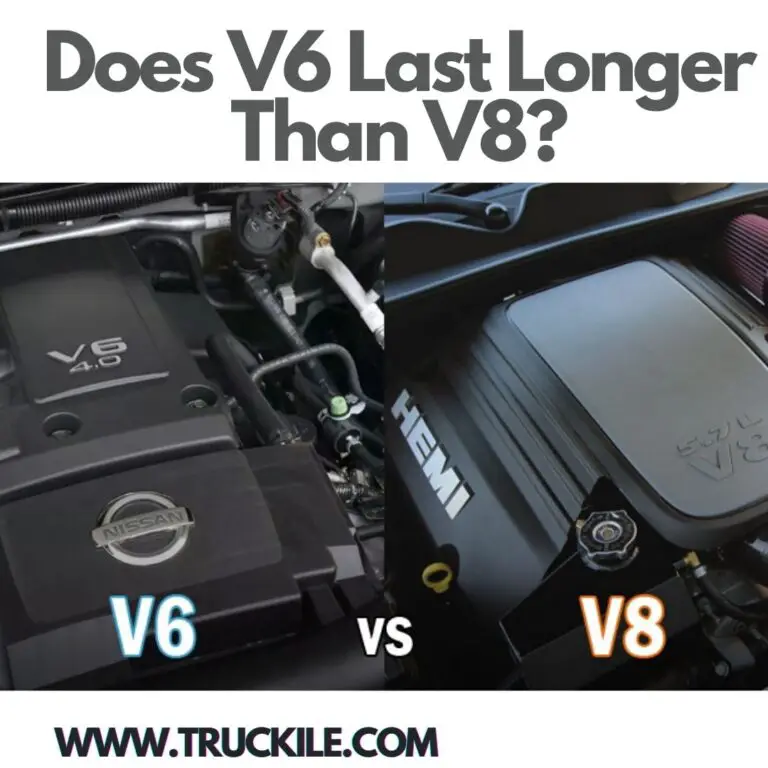Is It Worth Rebuilding A High Mileage Engine?
You have the intention of rebuilding a high mileage engine, so you meet your brother in search of a substantial response to the question, Is It Worth Rebuilding A High Mileage Engine? You meet people who you think would have an answer, but most of the people respond with “I don’t know.” Now, you don’t know whether you should go ahead or not. This article will help you make a decision around rebuilding a mileage engine.
Is It Worth Rebuilding A High Mileage Engine?
Yes, it is worth it. You could, if you choose to, make it quite better than stock. Depending on the exact year, the ratio of your compression changes. Some are 9, some are 9.4, some are 9.5 (later ones are 10:1).
Wondering How Many Miles Will A Rebuilt Engine Last?
Are you having worries that the engine of your vehicle is getting ready to fail? Do you observe an unusual quantity of smoke leaving the tailpipe? Do you hear tapping or knocking sounds? Are you seeing that the oil burns faster than it used to? If the answer to either of these questions is YES, then it’s important you know that those are simply symptoms of “your engine may be failing.” Lubrication problems, normal mileage wear and tear, excessive heating, and lack of service could stand as a cause of a few of these symptoms.
The presence of these problems doesn’t necessarily mean that “it’s your vehicle’s end.” When it comes to “engine repair,” most vehicle owners out there settle for buying a used or new vehicle. Sometimes, it’s not the best decision or necessary to get rid of your current vehicle — because of the problems you’re experiencing. If your vehicle is still in a good shape, it’d be an incredible idea to rebuild or replace the engine, rather than opting for replacing the vehicle. If you put purchasing a new vehicle versus the cost of engine repair into consideration, you’ll begin to see the evident economic benefit of retaining and maintaining your current vehicle.
So, let’s look at answering this question: “what is a rebuilt engine?” It’s simply an engine which has been remanufactured and tweaked to prescribed specifications and standard by skilled mechanists — highly skilled mechanists — using quality components and equipment. There are numerous components that vehicle owners have installed that exceed or meet the performance standard of original equipment — during the process of remanufacturing. This brings us to the question: “how many miles will a rebuilt engine last?” It has been proven and publicly declared that the rebuilt engines are much better than the engines the manufacturers installed at the factory. They are tagged to be reliable, dependable, and backed by warranties.
Other Questions:
Furthermore, if you’re thinking of repairing your engine, the cost-effective and most reliable choice any driver can make is to opt for using a rebuilt engine to replace your current engine. Rebuilt engines come with amazing gas mileage and don’t emit many pollutants, as compared to a worn-out engine. Do you desire to save on the energy, the amount of energy, used in processing discarded engines? Then, a perfect move would be to rebuild your engine. It helps you to conserve the energy and resources you’d need to manufacture all-new engines.
Answering the question — how many miles will a rebuilt engine last? — is also our way of giving an answer to Is It Worth Rebuilding A High Mileage Engine? The typical warranty you would see on a rebuilt engine is for at least 12,000 miles or one year. There are engine repair specialists out there that offer warranties that get to 36 months and even unlimited miles. Go and enquire at your auto shop in order to be in the know of their warranty for rebuilt engines before going ahead to make a decision. You have to know that it’s not all problems you experience that you’d just jump into replacing your engine. Most times, the engine issues are not as serious as you think and what they may require is just a minor engine repair.
Weigh The Pros & Cons Of Your Engine
Even though you’re consistent with your routine maintenance, your vehicle still can become more vulnerable to the problems an engine is likely to encounter, as the engine gets older and counts more miles right behind its wheels. Once problems begin to be obvious in the engine, we’ll be correct if we say that you’ll start to contemplate whether you should purchase a used or new vehicle instead of spending more money trying to repair your existing vehicle.
Moreso, if you go to a mechanic, the person might just choose to recommend that you rebuild your engine. That’s likely to be his recommendation when the problem is pretty serious. An automobile valuation company, Kelley Blue Book, states that a complete rebuild will easily replace this part including any other worn-out components. This will, to a large extent, reduce your chances of having a failed part in the nearest future — which would lead to an extra repair job. According to a Car Care Council, the end result of rebuilding is having an up-to-date and more efficient engine. There’s a replacement: the original components go while the newest parts come in — these new parts either exceed or meet the old one’s performance.
In addition, the organization has it that there are numerous benefits attached to using rebuilt engines. You’ll enjoy lower levels of emission and improved gas mileage when you go for upgrading the components of the engine. This option is known for its environmental friendliness since it performs a great job in conserving the energy that’d otherwise be needed to build a new engine or discard your old vehicle. One thing you have to know is, “rebuilding your engine” is less affordable than the normal, typical repair job. According to Car Care Council, it’s quite economical in the long run. The organization stated that rebuilding an engine would cost between $2,250 and $4,000 — though it depends on the type of vehicle. The price range is about 10 to 20 percent of buying a vehicle of the same type.
Following the “rebuild my engine” team will help you immensely in extending your vehicle’s life, allowing you to use it for a couple of years — provided that essential components (such as chassis, etc) are intact. If you opt for this work, you’d get a warranty that covers at least one year or 12,000 miles. Other warranties you would see might have theirs at three years and unlimited miles. You shouldn’t forget the fact that an engine rebuild doesn’t always serve as the remedy to all engine trouble. In most cases, just a minor repair would be enough to solve the issue. In the other remaining cases, more extensive work, however, might just be necessary.
The major drawback involved in a rebuilt engine is that it consists of a mix of both new and old parts. There’s this repair shop in Copley, Ohio, named Greg’s Engine & Machine — and according to them, the older components are likely to work negatively, in terms of shortening the life expectancy of the engine, even if the newer parts are reliable and efficient. Kelley Blue Book has it that if an engine gets damaged or worn out significantly, you just might want to put into consideration something called a remanufactured engine. This process carries out a more extensive job that has to do with replacing the old parts, updating every single thing — from the seals to the gaskets to the pistons.
If you finally decide to get extensive work done on that engine of yours, then don’t hesitate to settle for employing the services of a reputable company for the job. The Kelley Blue Book highly recommends that you search for a company that’s part of the Automobile Engine Rebuilders Association, a trade group that specializes in restoring engines. Drivers out there who make use of remanufactured or rebuilt engines should, especially, be observant of their maintenance needs. Greg’s Engine & Machine has given a warning that these engines shouldn’t be subjected to heavy stress — heavy stress such as towing or even long trips that get up to the first 500 miles. You should also ensure that you get the oil changed immediately after this interval before you resume the regular oil changes every three months or 3,000 miles.
Frequently Asked Questions (FAQs)
Is It Better To Rebuild Or Replace Engine?
It’s much likely that rebuilding of the engine can go a long way in saving you money compared to the replacement of the engine, depending on the engine problem you’re faced with and the cost of the parts needed for the repair. Depending on the kind of situation you’re involved in, rebuilding your engine is also likely to save you up to half of what you would have spent on replacing your engine.
Can You Restore A High Mileage Engine?
As long as it comes with good compression, there’s really no need for a rebuild. Give it a few new spark plugs, possibly new wires as well.
How Many Miles Will A Rebuilt Engine Last?
So to answer your question, if an engine rebuild is done well, the engine absolutely can last many tens of thousands of miles. And if you really plan to keep the car for 75,000 or 100,000 miles, you should consider finding a good car that you like, and then having the engine rebuilt yourself.
Is It Worth Rebuilding A High Mileage Engine — Conclusion
As a recap of the answer we gave to the question — Is It Worth Rebuilding A High Mileage Engine? — it states that:
Yes, it is worth it. You could, if you choose to, make it quite better than stock. Depending on the exact year, the ratio of your compression changes. Some are 9, some are 9.4, some are 9.5 (later ones are 10:1).
Thanks for reading.

Joe lives and breathes cars and trucks. After many years working in the Auto industry, he decided that it is only right to share his knowledge with the public. As a qualified expert in trucks and cars, he started working for Truckile.com and is the main editor and publisher.






